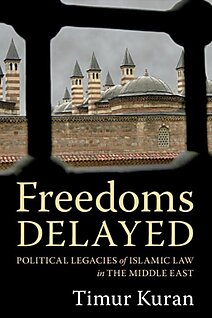Why is the Middle East the least free region of the world? Some observers focus on external factors, such as European colonialism or US foreign policy. Others highlight political or cultural elements. In his book Freedoms Delayed, Timur Kuran focuses on the persistent impact of Islamic law on civil, political, and economic liberties. “Because of its institutional history,” he says, “there is no quick fix to the Middle East’s ongoing illiberalism.” But, he adds, “Islam’s rich history carries within it the seeds of liberalization on many fronts.” Professor Kuran will explain why freedoms are “delayed” in the Middle East but not unattainable. John Voll and Mustafa Akyol will evaluate Kuran’s thesis and assess the prospects of freedom in the region.
Lunch to follow.




